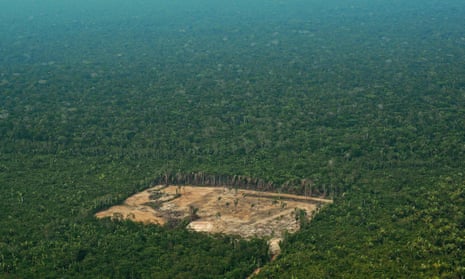A bill being rushed through Brazil’s senate would lift a ban on the cultivation of sugarcane for ethanol fuel in the Amazon, driving more deforestation and making it harder for the country to meet its commitments under the Paris climate deal.
The bill, which has been roundly condemned by environmentalists, companies and even Brazil’s union of sugarcane producers (UNICA), marks the latest move by a conservative congress to unravel Amazon protections.
Five former environment ministers have also criticised it. “This is another setback that should not thrive,” said one, José Carvalho.
Under a 2009 decree, sugar cane production is not allowed in the Amazon biome.
Allowing the highly-profitable crop to be raised on deforested land in the region would push out other crops and encourage more deforestation, said Marcio Astrini, public policy coordinator for Greenpeace in Brazil.
It could be “one of the biggest disasters for the forest,” he said.
The bill was first introduced in 2011 by Flexa Ribeiro, a senator for the centre-right Brazilian Social Democratic party in the Amazon state of Pará, and suddenly put up for a vote on Tuesday afternoon.
It would allow ethanol production on vaguely defined areas of Amazon land, including “altered areas” and “general land”. If approved on Tuesday and given presidential sanction, it could become law.
Brazil’s ethanol fuel is seen as a clean fuel alternative to gasoline by millions of motorists. According to UNICA, 27m cars in Brazil, 73% of the total can use either gasoline or ethanol, as can 4m motorbikes.
UNICA signed a statement on Monday from the Brazil Climate, Forests and Agriculture Coalition, an organisation of companies, business associations and civil organisations which attacked the proposed law.
“This bill contradicts the efforts made by the federal government, the productive sector and society towards the sustainable production of sugarcane in the country,” the Coalition said.
Ribeiro’s bill claims it would stimulate economic activity, international trade, and contribute to the national supply of biofuels. Brazil’s sugar cane production currently takes up 10m hectares but there are another 65m hectares it could expand into under current limits. And only 11m more hectares would be needed to double production, campaigners said.
